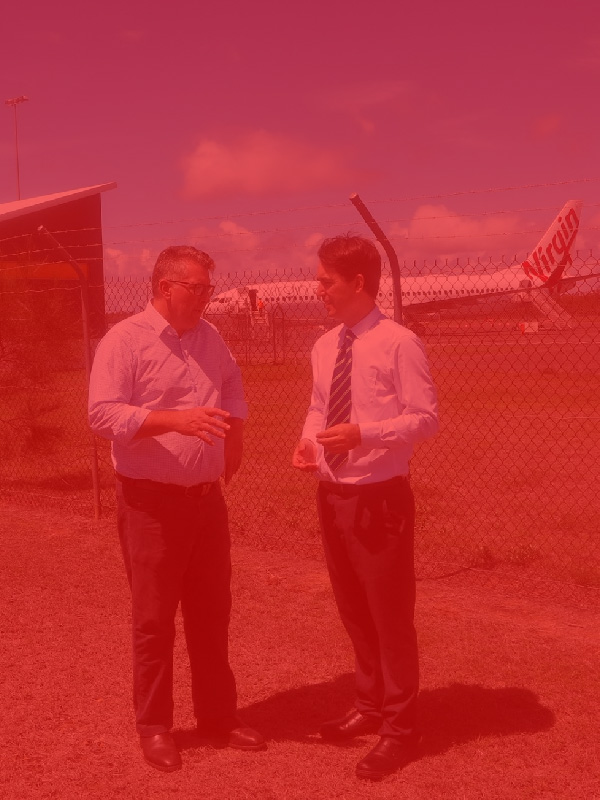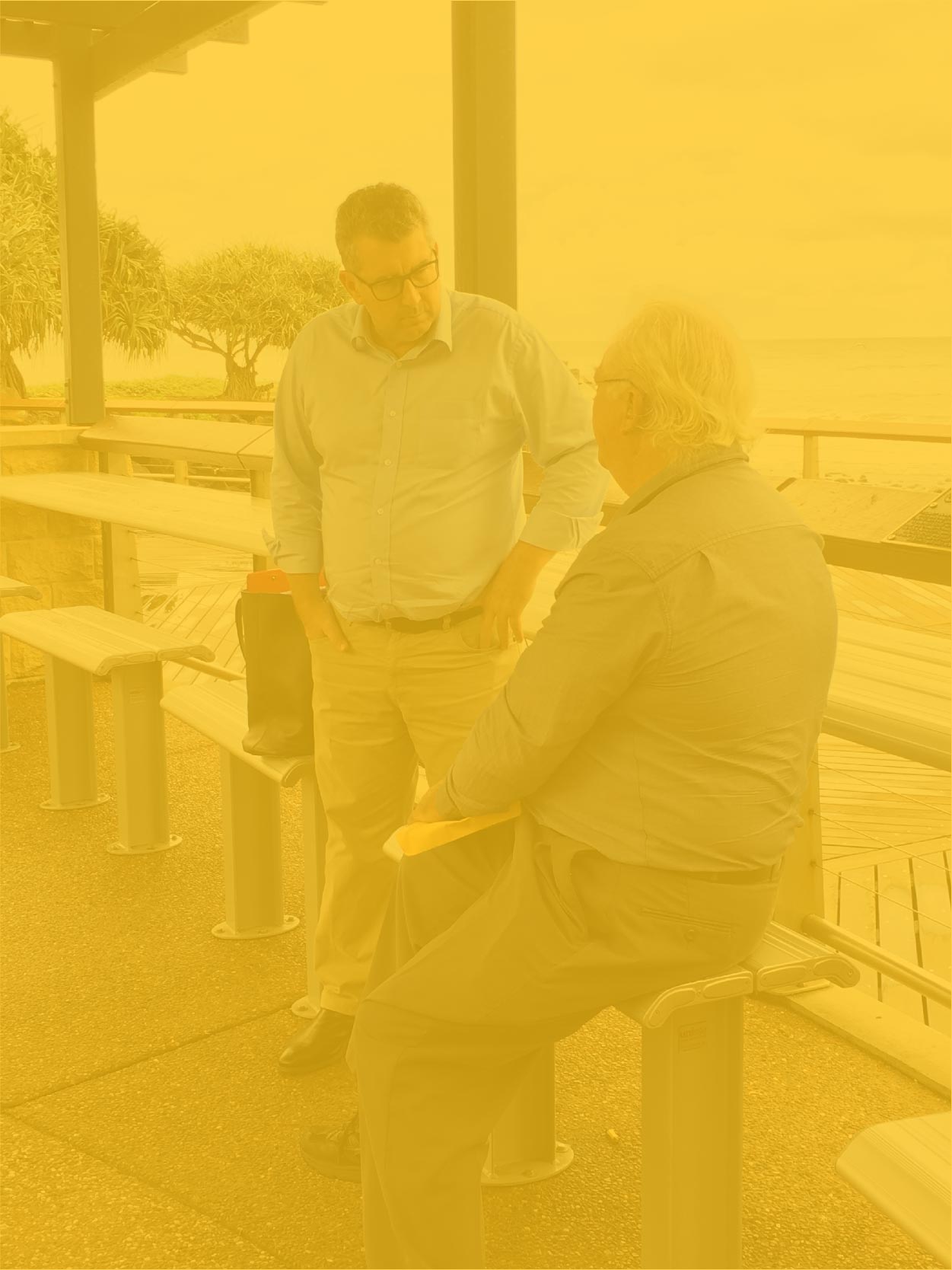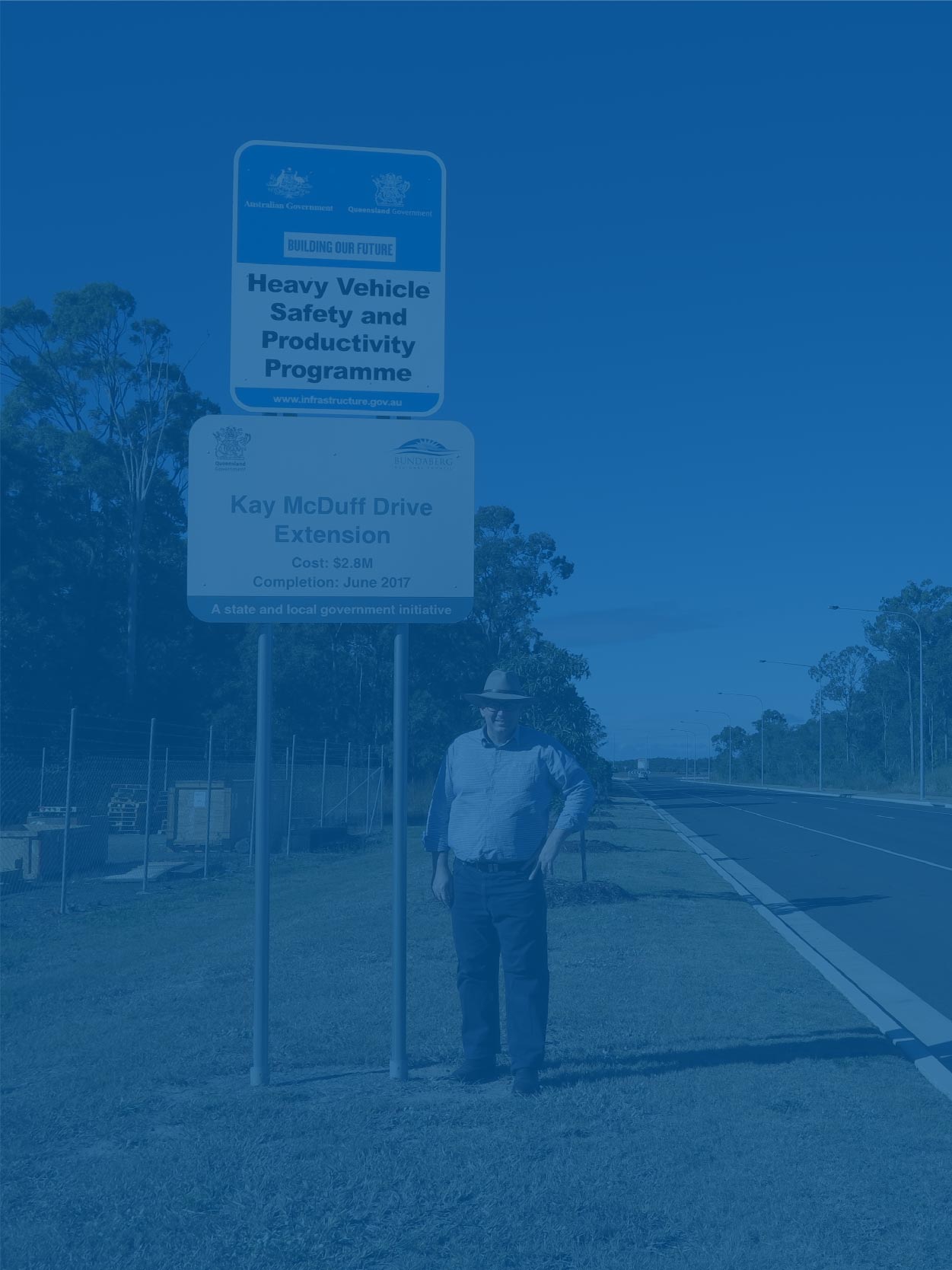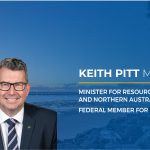Maiden Speech
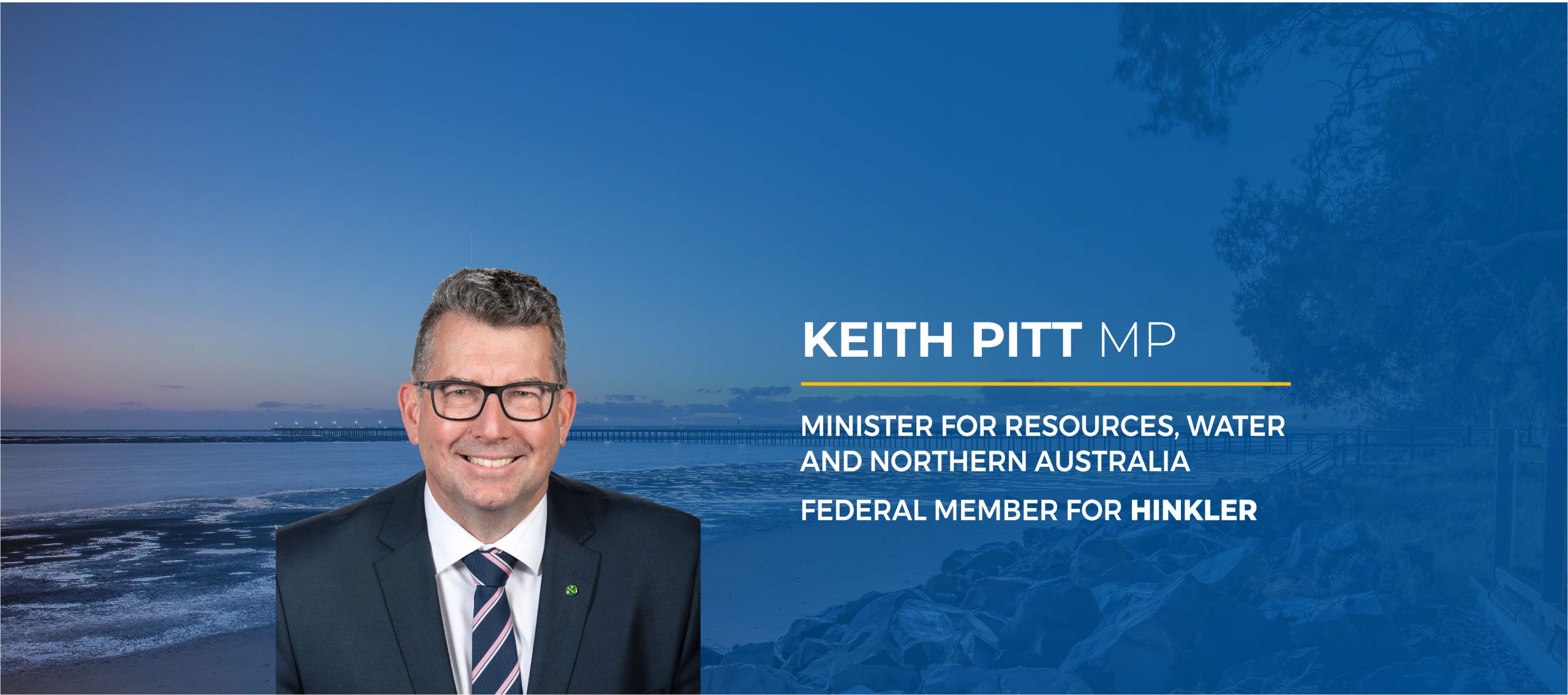
Maiden Speech
Thank you Madam Speaker,
I rise to speak in reply to the Governor General’s address made earlier this week, at the opening of this, the 44th Australian Parliament. (And I congratulate you on your election, Madam Speaker, and wish you all the best as you go about restoring decorum to this Place.)
I stand before you with a great sense of duty, purpose and humility as the newly elected representative of the place of my birth: the outstanding electorate of Hinkler.
It is a diverse region; known for its heavy red soil and clear blue waters. From the fishing villages to the city centres; from the country towns to the beachside communities: Hinkler is an electorate of great beauty, immense diversity and major opportunity.
We are truly blessed to have so many local assets: whether it’s watching whales making their annual migration through Hervey Bay or simply enjoying the sound of the waves gently lapping on Woodgate Beach.
Seeing the loggerhead turtles lay their eggs at Mon Repos, fishing in the Burrum River, gazing on the rolling red and green hills around Childers or savouring some freshly caught local seafood, like the world renowned Hervey Bay scallops.
It’s no wonder so many retired Australians move to the region to relax when their working days are done.
However, there’s no denying that Hinkler also has its challenges. It would be remiss of me to stand in this Place, on behalf of the people of Hinkler, and not mention the natural disasters of 2013. On the Australia Day weekend, Hinkler was hit by the remainder of Tropical Cyclone Oswald. Widespread flooding and several tornadoes ravaged the region. Streets, homes, businesses and farms were destroyed.
The events proved that Dorothea Mackellar’s assessment of Australia is as true today as it was when she first wrote My Country in the early 1900s. “A land of droughts and flooding rains! Her beauty and her terror!” Those haunting scenes will forever be etched in our minds, Madam Speaker. And how could they not be?
For some, the Australia Day weekend was the second time their business or home had flooded in three years. You wouldn’t blame them for throwing in the towel, putting their hands up and saying: “I give up”. But that’s not the Australian way. That’s not the Hinkler way! Our residents are a resilient and determined bunch.
Throughout the electorate, people worked for days in the muck and filth, to help clean up. Neighbours helped neighbours, strangers helped each other. Bakers worked 24-7 to supply food to their local townships. Truckloads of donated goods just continued to show up. Countless Australians donated money. Our armed forces and emergency service personnel rallied together.
Madam Speaker, the Member for Warringah, Prime Minister Tony Abbott and Member for New England, Minister Barnaby Joyce, were there too. They, and their staff, rolled up their sleeves and set to work without hesitation.
As we made our way down some slippery, muddy stairs with a large wooden wardrobe, I recall making a joke about the possibility of a leadership spill. To this day, I still think the pun was funny, but it went down like a brick and tile glider with the local volunteers.
The clean-up was colossal, and a true representation of the Australian spirit. I couldn’t be prouder of the people in my electorate. As a community, they put in an almighty effort.
While we are truly grateful for the support and goodwill we received in the days and weeks after, there is still much work to be done. The television cameras have moved on, but Hinkler’s need is still great. We understand all too well that without the images of devastation on the evening news, it is easy for Australians to forget that the recovery continues.
Madam Speaker, I speak on behalf of all Hinkler residents when I say our thoughts and prayers are with all people affected by the many other natural disasters that have occurred in recent times, both here and abroad.
Through you, Madam Speaker, I ask Members to keep natural disaster victims in their thoughts well after the events. What we do here, in this Place, can make a difference to their lives.
I will be doing everything in my power to ensure the Hinkler region does more than just recover! The greatest thing we can do to help communities prosper is provide Australians with hope and opportunity. Opportunity for education. Opportunity for training. Opportunity for employment.
Employment gives people the ability to pay their own way and provide for their families. The people of this great nation should be able to depend on their elected representatives, but that does not mean we should be building a nation of dependence.
Madam Speaker, Members on this side of the House understand that governments don’t create jobs, businesses do. If we are to create opportunities for Hinkler residents, we must make it easier, not harder, for people to do business in Australia.
Repealing the Carbon Tax will be a great first step in helping Australian farmers to flourish. Electricity costs incurred by irrigators, for example, skyrocketed with the introduction of the tax.
Cutting red and green tape will also save businesses time and money. In recent years, Hinkler producers have struggled to receive a fair return for the risks they take. Even those producers willing to persevere through bad weather had lost the ability to prosper.
Australia’s farmers deserve better than to just break even. Put simply, Madam Speaker, here in Australia, regulation is high, input costs are high, labour costs are high, the Australian dollar is high and yet, unsurprisingly, profits are low. Under Labor, we were at risk of losing our global competitiveness.
A root and branch review of Competition Laws, as promised by this Government, will ensure large and small businesses have an even playing field. We need a supermarket code of conduct with teeth, to ensure small to medium sized suppliers are getting a fair go.
Small business is the backbone of regional Australia. They employ about 50 per cent of all Australians working in the private sector. In Queensland, small businesses account for 96 per cent of all businesses in the state.
That’s why, Madam Speaker, we must remove the bureaucratic shackles now, so that our businesses are ready for any opportunities that come their way.
And there WILL be opportunities, Madam Speaker. As household incomes increase in India and Asia, so too will the demand for reliable, safe and fresh Australian produce.
Sugar, sweet potatoes, avocados, mangoes, macadamias, capsicums, tomatoes, strawberries, and the list goes on: Hinkler has a proud history as one of the nation’s food bowls.
Named after the great aviator Bert Hinkler, the Hinkler electorate is also known for innovation: from the mechanical cane harvester to beverages like Bundaberg Rum and Bundaberg Brewed Drinks. The Hinkler region has always punched above its weight and I am proud to say manufacturing is alive and well in Hinkler.
As our lives become increasingly busy, demand for convenient, value-added products – like those produced by AvoFresh, Jakes Candy, Macadamia’s Australia and Farm Fresh Fine Foods – will continue to grow.
With its access to quality produce and proximity to Brisbane, Hinkler’s manufacturing sector is facing a period of enormous potential. If there is one thing people should take away from my maiden speech, Madam Speaker, it is that we have a lot to offer in the Hinkler district and we ARE open for business!
Well-planned infrastructure, delivered in a timely manner, is vital to helping business get their products to market. It also facilitates service delivery to regional Australia and provides long-term employment, and opportunities for training and development.
The Hinkler electorate is ideally situated for a container port to service Central and South East Queensland, without impacting on the Great Barrier Reef. The port could be constructed for much less than the cost of planned expansions elsewhere. Development of the port would attract investment to the region and create jobs.
Sinking a wreck in Hervey Bay would attract divers from around the world, and give our local tourism operators a much needed boost.
A bridge over the Burrum River would link the Hinkler electorate’s tourism centres and provide an alternate route for critical transport, to take pressure off the Bruce Highway.
Madam Speaker, I am proud to be part of a team that understands the benefits infrastructure can bring to regional Australia. Together, over the next ten years, the Abbott and Newman Governments will spend $8.5 Billion upgrading the ailing Bruce Highway.
I also look forward to this Government delivering on its commitment to establish a National Stronger Regions Fund. Councils and community groups will be able to apply for grants for capital works projects that will regenerate the community. Regions with a higher than average unemployment rate, like Hinkler, will be the priority.
Sadly, like so many regional communities, one of Hinkler’s greatest exports is its young talent. Hinkler is renowned for its sensational climate, affordable land and comparatively low cost of living. Doctors, nurses and allied health professionals have worked hard to improve the reputation of local health services, to the extent that they have successfully reduced hospital wait times and significantly improved patient outcomes. The region also has some fantastic schools. It really is the ideal place to raise a family.
But if we are to hold on to our young people, we need to provide new opportunities: real jobs with real outcomes. Ensuring that our primary producers are appropriately rewarded for their efforts will make our agriculture sector an attractive career prospect once more. We need to give our young people the incentive to undertake a trade. We need to give them a reason to return once they have finished their university studies in the big smoke.
Our workforce is losing critical skills through a decline in interest and an aging population. In the past, skills have been learned and passed on. Today, we find ourselves in a situation where we need skilled migration in this country because we simply have not trained enough of our own people.
In Hinkler, aged care is another sector that presents enormous opportunity for young people starting a career in nursing or allied health. As the local population ages and more retirees move to Bundaberg and Hervey Bay to enjoy the lifestyle, the demand for in-the-home care, retirement villages and nursing homes is going to increase.
Australians who have already paid their dues, and their taxes, deserve to live out their remaining days with dignity. There is no doubt that this will come at significant cost to Australian tax payers, but it is worth remembering that in constructing these facilities and developing new innovative models for service delivery, we will be creating jobs for future generations. The business opportunities and economic benefits, both direct and indirect, should not be underestimated.
Through you, Madam Speaker, my message to the young people in my electorate is simple: if my parents can work their way out of poverty through sheer determination; if I can be here, in this Place, representing the people of Hinkler, then you can do anything. You just need to have the will.
In my capacity as the Federal Member for Hinkler, I will do everything I possibly can to give young people hope and opportunity.
Madam Speaker, the Hinkler electorate has afforded me great opportunity and I want the same for my three young children.
Growing up in the Woongarra District, I was one of four boys who spent every waking moment outdoors: riding motorbikes, playing cricket, and fishing. Before leaving home, I joined the Bundaberg and Elliot Heads Surf Life Saving Clubs.
It concerns me that today Hinkler has some of the highest rates of diabetes and obesity in the nation. People are spending more time indoors on their computer and less time getting some fresh air.
Social media will be the great challenge of this generation. While it presents incredible opportunity, it is complex, far reaching and constant. It can envelop every waking minute, preventing victims of bullying and abuse from getting any respite.
Social media’s greatest threat is to our children: Not because of the medium itself, but because you never can be sure who is on the other end. Our challenge, as elected Members of Parliament, will be to find the delicate balance between free speech, the right to information and protecting the vulnerable.
Madam Speaker, my parents, both of whom are here today, blessed me with three gifts, which at the time seemed like punishment, but turned out to be some of the greatest things a parent could give to their child.
Firstly, they taught me work ethic. Work was part of life from a young age; whether cutting sleepers in the bush, at home in the vegetable garden, or working on machinery.
Secondly, they built self-confidence. A belief you can do anything if you’re willing to work hard and pay the price. In my home, there was no such word as “can’t”. Kepnock State High School’s motto has stayed with me throughout my adult life: “Success is earned”.
And in third place: gratitude and humbleness. It’s amazing the difference a simple thing like braces can make to life, particularly when it’s provided at a time when money is more than tight. This type of process was new and the results were uncertain.
I am fortunate to have worked as an apprentice, a tradesman, an engineer and a farmer. I have been an employer and an employee, a worker and a manager, a business owner and a student. I have had many mentors throughout my life, and I thank them profusely, because without the opportunity to learn you lose your ability to succeed.
Madam Speaker, I would like to take this opportunity to thank my campaign team, party members and supporters, Campaign Manager Lenny Fehlhaber and of course my family: my wife Allison, son Liam and daughters Ruby and Elisabeth. I’m grateful for the support of State MPs Ted Sorensen, Anne Maddern, Stephen Bennett and Minister Jack Dempsey.
I have had the absolute privilege, to receive advice from two former Members for Hinkler, Brian Courtice and Paul Neville. Federal members from opposite sides of the House, both concerned for their region and its future.
There is one baton in particular, passed on to me by Mr Neville, which I will pick up. Long Tan legend, Lieutenant Colonel Harry Smith, is still with us. Through you, Madam Speaker, I give Harry this commitment: we will find a way to recognise hissoldiers. As a Nation, we are indebted to Harry, and to his team. We live our lives, in this wonderful country, because of their sacrifice. If there is a way to help Harry and his team to return to Long Tan for the 50th anniversary of the battle, I will do my utmost to find it.
Most importantly, Madam Speaker, I would like to thank the people of Hinkler for putting their faith in me. I will repay your support by putting your interests first.
In closing, I would like to recall part of speech given by former Prime Minister John Mc Ewen at the opening of John McEwen house in 1968.
“It’s a fact, a trite truism, that politicians get the limelight. Whether for good or evil they get the limelight. But behind the politicians, in every political party, you will find there is a tremendous mass of loyal, believing people, who stand behind them and whose loyalty and whose confidence gives confidence and a willingness to carry on to the politicians. It is in the days when we are under attack, either as political individuals or as a political party. The day when we are unpopular, when it is the knowledge that we have behind us the believing confidence of thousands of people that gives us the strength to carry on.”
Madam Speaker, I stand before you today in the knowledge that I will never stand alone in this Place whilst I represent the great people of Hinkler.
Thank you.



